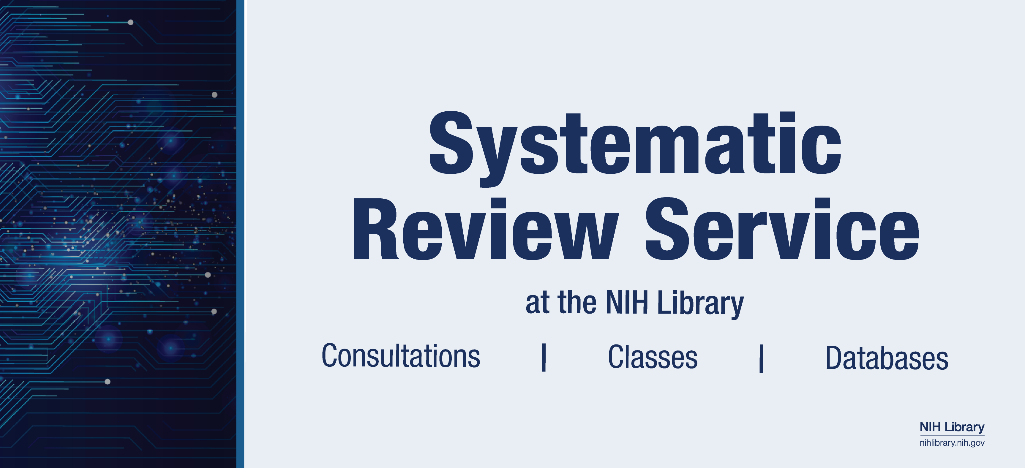Are you looking for help with your systematic review? The NIH Library’s Systematic Review Service can help you select the most appropriate review type, methodologies, and reporting guidelines in order to produce a quality review.
What is a Systematic Review?
A systematic review is a study of studies, whereas a clinical or animal study has humans or animals for its study subjects. As with other study types, there are guidelines and standards for the proper conduct and reporting of systematic reviews in the literature — this helps to ensure they are reproducible, transparent and completed correctly. There are many types of systematic reviews, each of which has a formal methodology and reporting requirements.

How Can the NIH Library Help You?
Consultations
NIH Librarians are available to guide you through your entire systematic review process, including selecting the appropriate type of review, providing guidance on the steps to complete a systematic review, conducting the literature search, and assisting with editing the final manuscript. Schedule a consultation to get started today.
Classes
In September, the NIH Library is offering a series of one-hour webinars on systematic reviews. Click on the links below for more information and to register.
Databases
The NIH Library provides access to the three primary databases used for most systematic reviews: Cochrane Library, Embase and PubMed/MEDLINE.
Contains high-quality, independent evidence to inform health care decision-making, including the Cochrane Database of Systematic Reviews and the Cochrane Central Register of Controlled Trials (CENTRAL). CENTRAL is a curated registry of randomized and quasi-randomized controlled trials conducted worldwide. Search using keywords or controlled vocabulary terms, and export results to a citation management tool.
Allows users to build comprehensive literature searches through its extensive, deeply indexed database and flexible search options. By applying the PICO (Patient or Problem; Intervention; Comparison or Control; and Outcome) framework, users can structure searches that address clinical questions. Users can search Embase by keywords, controlled vocabulary terms, or use a special search feature to find literature on drugs, medical devices, pharmacovigilance, and more.
Features advanced search functions and filters to find literature for your systematic review. Search using keywords and controlled vocabulary terms from MeSH (Medical Subject Headings) to focus your search and find relevant information.
The NIH Library
301-496-1080
nihlibrary@nih.gov
____________________________
To stay up to date on NIH Library classes, events, resources, and services, subscribe to our e-news.
